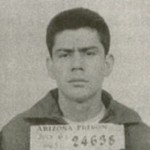Life Sentences in Germany
The American penal system is plagued by a lack of coherent purposes and clear institutional accountability. If we were interested in a model for how to do things better, Germany might be a good candidate. I’m no expert on the German system, but I’ve just read with great interest a new paper on the way that Germany manages its life sentences. The paper, authored by Dirk van Zyl Smit and entitled “Release From Life Imprisonment: A Comparative Note on the Role of Pre-Release Decision Making in England and Germany,” appears as a chapter in Fervet Opus: Liber Amicorum Anton van Kalmthout (Marc Groenhuijsen et al. eds., 2010).
Although the paper particularly focuses on a fascinating 2009 decision by the Federal Constitutional Court, it also provides some useful background information on the the legal framework for life sentences in Germany. Here are some features that stand out for me.

